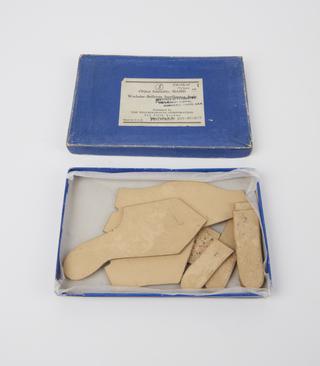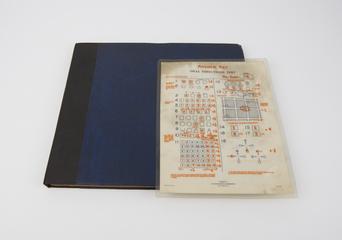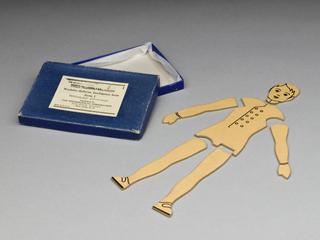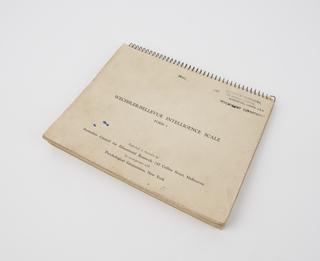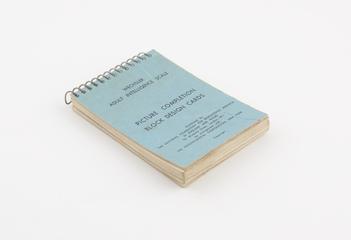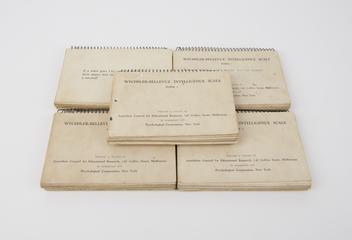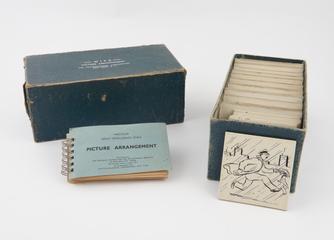
The Psychological Corporation 1921
The Psychological Corporation (1921) Psychologist James McKeen Cattell founded The Psychological Corporation in New York in 1921. Cattell was a leading figure in psychology and was the president of the American Psychological Association, as well as founder and editor of Scientific Monthly and head of Columbia University’s psychology department. At age 60, when Columbia dismissed him because of his public opposition to the draft in World War I, Cattell decided to pursue his interest in publishing. He joined forces with two former graduate students, Robert Sessions Woodworth and Edward Lee Thorndike. Both were eminent psychologists, and Thorndike was regarded as the foremost authority on the analysis and measurement of learning. The three men started a business to market psychological tests and related materials to educational, corporate and government clients. In 1939, the company published the Wechsler-Bellevue Intelligence Scales. David Wechsler was a former student of Woodworth at Columbia University. The company’s Wechsler intelligence tests continue to be industry leaders today. In 1970, Harcourt Brace Jovanovich acquired The Psychological Corporation and, in 1976, merged its educational testing department, acquired from World Book Company in 1960, into The Psychological Corporation. This new organizational structure leveraged the strengths of the two assessment product lines – individually administered psychological assessments and group administered educational measurements. In the 1980s and 1990s, The Psychological Corporation (TPC) expanded through a number of acquisitions. In 1986, the company acquired Merrill Publishing’s test division with its portfolio of tests for language, speech and hearing. In 1993, it acquired Cognitronics Corporation. In 1994, the company acquired Communication Skill Builders/Therapy Skill Builders and its therapy products for speech-language pathologists, occupational therapists and physical therapists. In 1983, The Psychological Corporation moved from New York to Cleveland. When the company moved to San Antonio, Texas, in 1985, it established its own operational services, including customer service, warehouse, distribution, information technology, scoring and reporting services. In order to establish a stronger identity for its educational assessment products, and to link them more closely to the Harcourt name, The Psychological Corporation’s education testing unit was branded as Harcourt Brace Educational Measurement in 1995. The name was shortened in 1999 to Harcourt Educational Measurement.
Harcourt General, Harcourt, Inc. and Harcourt Assessment, Inc.
In 1991, General Cinema Corporation, a diversified company that operated retailers such as Neiman Marcus and Bergdorf Goodman, as well as a national chain of movie theaters, acquired Harcourt Brace Jovanovich for more than $1.5 billion. In 1993, General Cinema Corporation renamed itself Harcourt General and restored the publishing division’s name to the historic Harcourt Brace & Company. At the end of the year, Harcourt General divested its cinema division.
In 1999, Harcourt General divested its retail division and shortened the publishing division’s name to Harcourt, Inc. That same year, Harcourt, Inc. adopted the brand name Harcourt Assessment for its testing businesses. At the time, Harcourt Assessment comprised The Psychological Corporation, which was known as the clinical division, and Harcourt Educational Measurement, which was known as the education division.
In late 2003, the testing business legally changed its name to Harcourt Assessment, Inc., and unified its two divisions into one operating company. The company retired the two division names – Harcourt Educational Measurement and The Psychological Corporation – although it retained “PsychCorp” as a brand imprint for select products. 2008: part of the Pearson group
